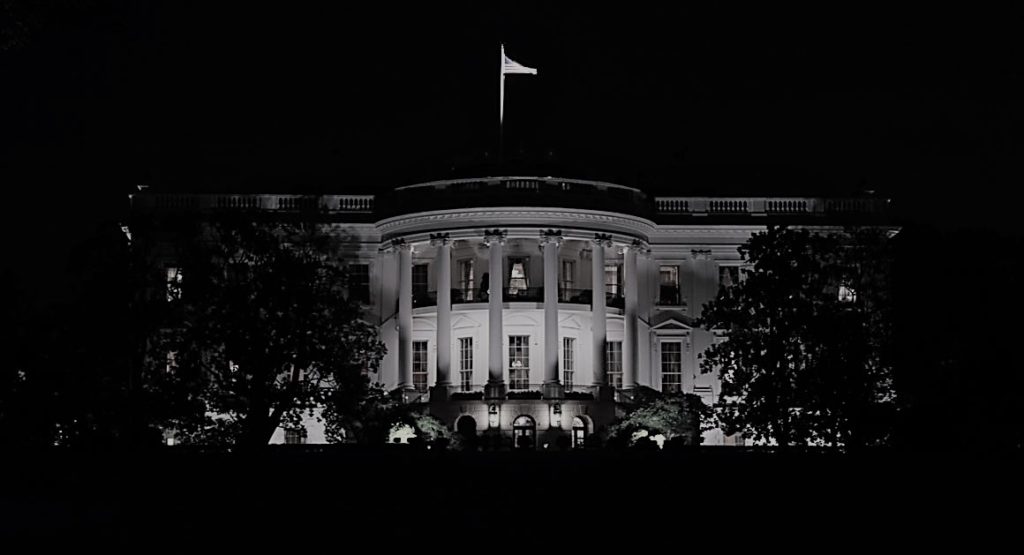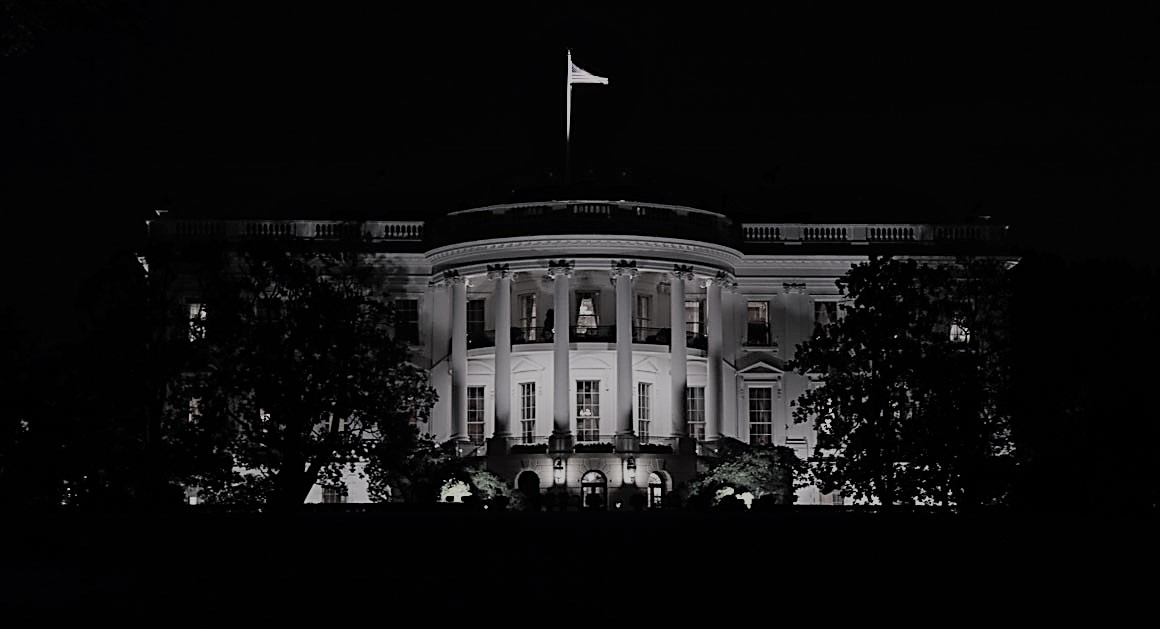For years, during and after Watergate, that was the singular political question that many were interested in knowing the answer.

Deep Throat was the secret and anonymous source in the Executive Branch who pointed Washington Post reporters Bob Woodward and Carl Bernstein in the right direction to uncover the covert and illegal operations that were taking place in the Nixon administration.
Everyone from Diane Sawyer to then-Chief Justice William Rehnquist was on the list of suspected individuals. Woodward and Bernstein maintained that they would reveal the name after his death or unless he chose to come out on his own. The mystery came to an end when former Deputy FBI Director W. Mark Felt revealed himself in a 2005 story in Vanity Fair magazine.
With Thursday’s New York Times revelation of another anonymous source – coming out more publicly in an Op-Ed piece – the game begins again but with a decidedly Trumpian spin.
When Bob Woodward’s new book, “Fear: Trump in the White House,” was released to the press a day earlier, Trump quickly moved to discredit and belittle everything in the book as “fiction.”
No sooner had “Fear” consumed the media cycle, then The New York Times released its bombshell Op-Ed. “I Am Part of the Resistance Inside the Trump Administration,” authored by an anonymous “senior official in the Trump administration,” was released on the web version of the paper on the afternoon of September 5. The author claims that he/she are part of a group of “many … senior officials in [Trump’s] own administration [who are] working diligently from within to frustrate parts of his agenda and his worst inclination.”
Why?
“The root of the problem is the president’s amorality,” the source says. “Anyone who works with him knows he is not moored to any discernible first principles that guide his decision making.”
Much of “Senior’s” statements not only appear to validate public evidence of Trump’s “impetuous, adversarial, petty and ineffective … impulses,” but assertions made by current and former Trump administration officials who spoke with Woodward for his book.
It’s no great secret that among Mr. Trump’s greatest weaknesses is his need to exaggerate and lie. With less than two years in office, Mr. Trump has proven himself to be the Mount Everest of political liars, and Republicans in Congress largely ignore calling him out fearing reprisals from his base of supporters. Clearly, this is one reason “Senior” has taken his or her public stance.
Nonetheless, Trump has labeled this latest Deep Throat as “gutless,” and vowed to track down the “Senior official” as well as those disloyalists who spoke to Woodward.
While there were suspicions about the source of Woodward and Bernstein’s information during Watergate, the identity of Deep Throat was a closely held secret among a select few at The Post. Nonetheless, there are interesting comparisons between then and now.
Deep Throat was an anonymous source within the Executive Branch.
“Senior” allegedly comes from the Executive Branch.
Deep Throat acted as a check on Nixon by confirming certain information that Woodward brought to him, eventually leading to a whole host of illegal activities performed by the Nixon White House.
“Senior” is performing some of the same function, however, he/she chooses to speak directly to the public. “We believe,” The Times explains, that “publishing this essay anonymously is the only way to deliver an important perspective to our readers.”
Deep Throat’s purpose was to blow the whistle on the illegal activities of a presidential administration that was clearly out of control.
Similarly, “Senior” believes “…our first duty is to this country, and the president continues to act in a manner that is detrimental to the health of our republic.”
Both are acting out of a higher sense of duty to the country.
While “Senior” does not offer continuous details, à la Woodward’s Deep Throat, he or she does give the American public some examples.
“We fully recognize what is happening. And we are trying to do what’s right even when Donald Trump won’t.
“The result is a two-track presidency.
“In public and in private, President Trump shows a preference for autocrats and dictators, such as President Vladimir Putin of Russia and North Korea’s leader, Kim Jong-un, and displays little genuine appreciation for the ties that bind us to allied, like-minded nations.
“Astute observers have noted, though, that the rest of the administration is operating on another track, one where countries like Russia are called out for meddling and punished accordingly, and where allies around the world are engaged as peers rather than ridiculed as rivals.
“On Russia, for instance, the president was reluctant to expel so many of Mr. Putin’s spies as punishment for the poisoning of a former Russian spy in Britain. He complained for weeks about senior staff members letting him get boxed into further confrontation with Russia, and he expressed frustration that the United States continued to impose sanctions on the country for its malign behavior. But his national security team knew better — such actions had to be taken, to hold Moscow accountable.
“This isn’t the work of the so-called deep state,” “Senior” writes. “It’s the work of the steady state.”
Whistleblowers have a long history of being criticized and slandered and only a rare few are ever acknowledged for the moral courage they demonstrate. Brown & Williamson tobacco insider Jeffrey Wigand, FBI agent Colleen Rowley and WorldCom’s Cynthia Cooper all faced harsh criticism in coming forward to speak of wrong-doing at the highest levels.
While we often celebrate fire fighters, emergency personnel, police, and private citizens for demonstrating physical courage, moral courage is viewed differently. “Because social, economic and political pressures often make it difficult for us to do the right thing,” ethicist Michael Josephson writes, “it takes moral courage to be honest at the risk of ridicule, rejection, or retaliation, or when doing so may jeopardize our income or career.”
Think about this: what do any of these whistleblowers gain by putting themselves at such risk? Jeff Wigand lost his job, his house, his wife, and for a time, his reputation. Coleen Rowley and Cynthia Cooper faced similar ridicule and distrust.
We need whistleblowers, individuals with the requisite moral courage to act on behalf of the public good in our communities, corporations and government.
Without Woodward’s Deep Throat how much more damage could Nixon and his conspirators have done to the country?
While it was only much later that Deep Throat’s Mark Felt received the positive acknowledgment he deserved, “Senior” will undoubtedly continue to receive mostly negative reaction until more is known.
“The voice of moral courage is always there,” Josephson reminds us, “but sometimes it is drowned out by the drumbeat of our fears and doubts. We need to learn to listen for the voice. The more we call on it and listen to it and trust it, the stronger it becomes.”
Comments
Leave a Comment












Hi Jim! While I completely agree that the world needs more whistleblowers, and it is somewhat comforting to see that people are keeping an eye on some of the craziest actions of DT [Donald Trump], another aspect of it is deeply disturbing.
Instead of taking action to stop and or curtail DT, they are just doing the job of an elected official based upon their own sense of what should be done. That is not democracy and they are still covering up for their “party” or their particular power position. Wasn’t Deep Throat attempting to oust the problem rather than just make sure nothing bad happened?
To me, there is a big difference and it continues to point out a big problem in our government today — too many people trying to hold onto power to work the system their way. When “Senior” works with others to remove DT from office, then I will start celebrating “his” courage.